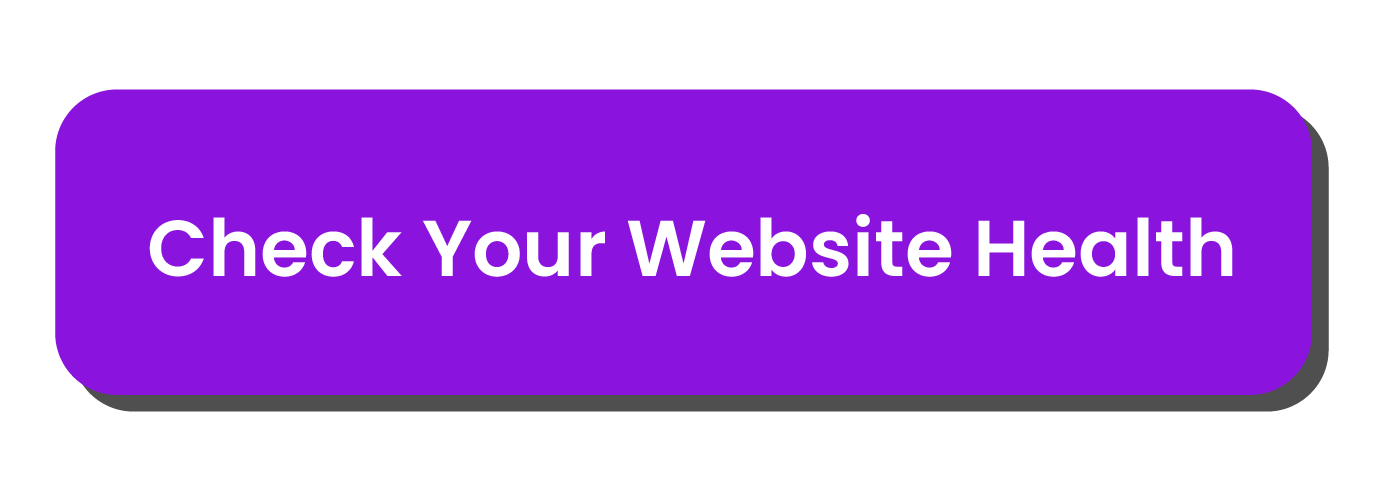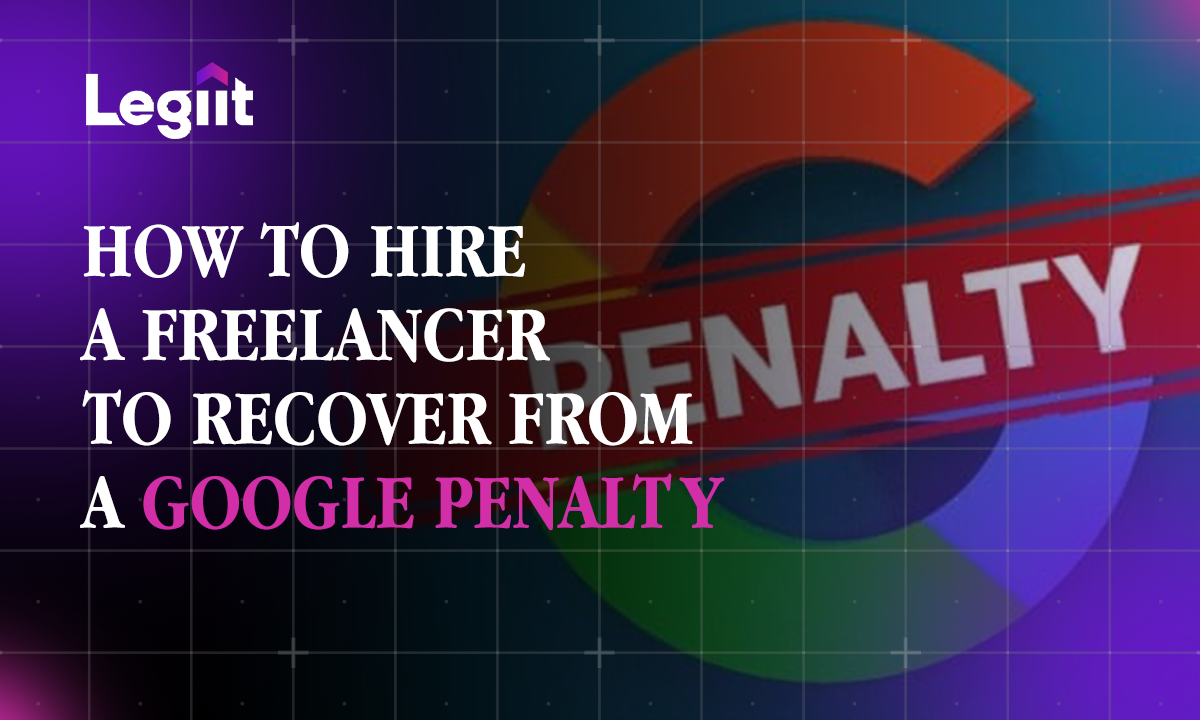A technical SEO expert plays a key role in enhancing your website’s speed, crawlability, and overall structure to boost search engine rankings. Legiit offers specialized technical SEO services designed to fix site errors, improve mobile usability, and optimize indexing for better online visibility.
Today, having a website that runs well matters a lot. Here are seven signs that show you should hire a technical SEO expert.
- Slow Website Speed Impacting User Experience If your website loads slow, visitors may leave right away. Page speed optimization helps fix this. Slow websites often fail at Core Web Vitals, which measure how fast and smooth pages load. A technical SEO specialist can make your website load much faster.
- Poor Search Engine Rankings Despite Content Efforts Even with good content, your site might rank poorly if it has technical issues. If you see low organic search rankings, the problem could be behind the scenes. An expert can find these issues and improve your site's visibility.
- High Bounce Rates and Low Engagement Metrics
Visitors who leave quickly raise your bounce rates. This can happen from slow load times or confusing site design. Reducing bounce rates means making the site easier to use so users stay longer and engage more. Technical SEO pros know how to do this.
- Mobile Usability Issues Affecting Conversions More people use phones to browse now than ever before. If your site is hard to use on mobile devices, it can hurt sales or signups. Mobile SEO optimization fixes problems so mobile users can navigate easily and convert better.
- Crawl Errors and Indexing Problems in Google Search Console Search engines need to crawl your pages properly to list them in results. Crawl errors stop that from happening. Checking indexation in Google Search Console shows if pages are missing or blocked. A technical SEO expert fixes these crawl errors fast so all pages get found.
- Significant Drops in Organic Traffic Without Explanation
Sudden traffic drops can confuse you. They usually point to problems with how the site works, not just changes in search rules or competitors. Getting a pro for SEO troubleshooting helps find and fix these hidden problems.
- Website Security Vulnerabilities and Hacking Concerns Security issues can harm your site's trust and safety. Hackers cause damage that scares visitors away and hurts conversions. Fixing website security issues stops this risk and keeps your site running safely.
The Role of a Technical SEO Specialist in Improving Website Performance
A technical SEO specialist helps boost your site's performance by:
- Diagnosing site errors with thorough checks
- Detecting and fixing common SEO problems like broken links or missing tags
- Prioritizing fixes so the most important issues (like page speed) come first
- Resolving ongoing problems before they get worse through regular monitoring
These experts spot critical SEO errors quickly and take action fast. That way, your site runs smoother, ranks better, and keeps visitors happy.
Catching these signs early means you avoid bigger headaches later on and keep your website working well compared to others who miss these important details!
Technical SEO Audit: Identifying and Resolving Website Issues
A technical SEO audit helps find hidden problems that hurt your site’s search rankings. It’s a full SEO site audit or technical website audit that looks for errors like broken links, duplicate content, or slow pages. When you spot and fix SEO errors early, you stop them from damaging your site’s visibility.
Comprehensive SEO audits check everything from crawlability to indexation to fix critical SEO problems fast. Doing regular audits keeps your site ready for search engines and helps bring more organic traffic while improving user experience.
Website Performance Optimization: Improving Page Speed and Core Web Vitals
Website performance optimization cuts down website load time using page speed optimization tricks. Fast sites get better ranks since Google cares about Core Web Vitals these measure how quickly a page loads, how interactive it is, and if things stay steady while loading.
Google PageSpeed Insights and GTMetrix show page speed metrics that reveal what slows your site. You can fix this by optimizing images, using browser caching, shrinking CSS/JavaScript files, and picking good hosting. These steps boost page speed SEO.
Better page speed means higher rankings and fewer people leaving quickly because the browsing feels smooth on all devices.
Crawl Budget Optimization: Ensuring Search Engines Can Efficiently Crawl Your Website
Crawl budget management makes sure search engines spend their crawling time well on your website. If crawlers waste time on useless pages, important ones might not show up in searches quickly or at all.
Crawl budget optimization removes low-value URLs like duplicates or thin pages from indexing. It also improves internal links so bots visit your key content more often during search engine crawling. Setting up sitemaps right helps crawlers find important areas faster.
This service helps each crawl session work better and stops resources from being wasted on unneeded pages.
Schema Markup Implementation: Enhancing Search Engine Visibility
Schema markup adds tags to web pages so search engines get the content’s meaning better than with plain HTML. A good website schema makes your listings in SERPs richer with things like star ratings, event dates, prices, or FAQs right in the results.
Schema markup pulls more clicks by making snippets look nicer and easier to read for users searching online. It also helps voice assistants find quick answers from your content.
Using standard schema vocabulary raises visibility without changing how the webpage looks but helps Google understand info about your products or services much clearer.
Structured Data Optimization: Improving Search Result Richness
Structured data implementation goes past basic schema markup to improve how data shows up in rich snippets the fancy listings under normal links in Google searches. These can be review stars, recipe details with cooking times, breadcrumb paths, or video thumbnails inside results.
Structured data SEO boosts organic traffic by making listings pop out compared to others. It sends clear signs of relevance which can help rankings indirectly because more clicks often mean better positions over time.
Optimizing structured data means checking it carefully against Google's rules to avoid errors that stop snippets from showing while keeping result richness consistent across many queries.
Mobile Optimization: Ensuring Seamless User Experience Across Devices
Mobile usability matters now because over half of web traffic comes from phones and tablets. Mobile-friendly design lets sites fit any screen size smoothly with easy navigation buttons, readable fonts, quick loading times, responsive layouts and no annoying pop-ups that hurt mobile UX scores used in mobile SEO checks.
Mobile SEO optimization includes arranging touch targets properly and compressing images sized right for smaller screens but still sharp all helping improve Core Web Vitals scores that matter for mobile users specifically.
Good cross-device performance cuts bounce rates big time while making visitors stay longer a positive sign Google likes in sites built with mobile-first ideas today.
Common Technical SEO Issues: Diagnostics and Solutions
Technical SEO issues can hurt your website’s visibility and user experience. You need to find and fix these problems to keep your search rankings steady.
Website Architecture Problems
Good website architecture helps users and search engines find their way around your site. When site navigation is messy or confusing, you lose traffic and rankings. Fix your website architecture by organizing pages clearly. Use URLs that describe the content well. Make sure important pages show up within a few clicks from the homepage.
Indexation and Crawlability Issues
Search engines use indexing management to decide which pages to list in results. If your site has crawlability problems, some pages won't get indexed right. This happens often because of wrong robots.txt rules that block crawlers or missing sitemap files. Use tools like Google Search Console to check indexation regularly. That way, you know your content is visible to search engines.
Broken Links and Redirect Errors
Broken links annoy visitors and waste crawl budget, which lowers SEO value. Redirect errors like wrong 301 redirects or redirect chains confuse search engines about page authority. To fix this, scan for broken links often and repair them fast. Manage redirects smartly with an SEO redirect strategy that keeps link power intact.
Duplicate Content Challenges
Duplicate content makes search engines unsure which page to rank when several URLs show the same info. This splits ranking power across copies instead of focusing it on one main page. Deal with duplicate content by adding canonical tags right, avoiding URL parameters that make duplicates, and merging similar pages when you can.
Recognizing Signs of Technical SEO Problems: Performance Dips and Error Messages
Performance drops can mean there are technical SEO problems like site crawl errors or other crawl errors shown in Google Search Console. These happen when bots can't access parts of your site because of server timeouts, blocked resources, or bad settings.
If organic traffic suddenly falls without changes in content or links, check for technical faults fast. Fixing crawl errors helps search engines index pages better. It also improves user experience since all pages load correctly.
Addressing Technical SEO Issues After a Rebrand or Domain Change

Changing your brand or domain needs careful work so you don't lose your rankings.
Use an SEO migration checklist like this:
- Map old URLs to new ones using 301 redirects
- Update internal links across the site
- Submit new sitemaps to search engines
- Watch indexing status after migration
A strong site migration strategy cuts downtime effects on traffic by keeping link power with proper redirect management. Fix any crawl issues quickly after launch.
By spotting common technical troubles early such as improving website architecture, managing indexation well, fixing broken links fast and handling migrations carefully after rebrands or domain swaps, you keep steady growth in organic visibility from a solid technical seo expert point of view.
Choosing and Working with a Technical SEO Specialist
Picking the right technical SEO expert matters a lot for your site’s health. A reliable SEO specialist knows how to find tricky problems and apply specialized SEO services that fit what your business needs. When you hire an SEO specialist, choose someone who plans SEO in a smart way and can make solutions just for you.
Working with a technical SEO specialist helps keep your site fast and easy to crawl and index. You should talk clearly about what you want and how things are going so you stay on track. Good experts share honest reports and change their plans when the data says so.
Things a technical SEO specialist will help with:
- Fixing site speed issues
- Improving crawlability
- Handling indexation problems
- Making plans based on your goals
Key Questions to Ask a Potential Technical SEO Specialist
Before you pick someone, ask questions that show how good they really are:
- Have you worked on sites like mine before?
- What do you do during your first audit?
- How do you decide what needs fixing fast vs. what can wait?
- Do you give ongoing help or just one-time advice?
- Will I get clear, doable tips after the free consultation?
These questions help spot if they offer effective SEO strategies that work. Good SEO consultancy firms expect these questions because trust matters.
Ask about:
- Experience with similar sites
- Audit process details
- Fix prioritization
- Support options
- Follow-up recommendations
Understanding the Costs and Timelines Involved in Technical SEO Services
SEO cost estimation depends on your site's size, how tricky it is, and how urgent the fixes are. Some necessary SEO actions like fixing broken links or updating robots.txt don’t take long but bring quick wins urgent SEO fixes often boost user experience right away.
Bigger changes like rearranging site structure or adding schema markup take more time but help long-term. Talk about timelines early so everyone knows what to expect; some jobs take weeks, others months.
Clear pricing avoids surprises by showing what’s in each service level. This helps businesses plan money well and focus on big-impact fixes first.
Key cost factors:
- Site size & complexity
- Urgency of fixes
- Quick wins vs long-term changes
- Clear pricing tiers
How Legiit's Technical SEO Specialists Strategize, Build, and Deliver Results
Legiit’s team starts every job with comprehensive SEO audits that find hidden ranking problems. They use efficient SEO techniques that fit each client’s platform, making sure users have a smooth experience everywhere.
Their specialists make sure all fixes work well together linking technical tweaks with content plans to grow traffic steadily. They watch progress closely to tweak things when needed.
This method mixes deep know-how with practical steps to get real results fast without cutting corners over time.
What Legiit's specialists do:
- Run full audits to find issues
- Use smart, efficient methods
- Keep user experience smooth
- Align tech fixes with content strategy
- Track progress for quick changes
Legiit's Core Technical SEO Services: A Detailed Overview
Legiit offers technical SEO services to help fix website issues and improve rankings. A technical SEO expert performs an SEO audit, sometimes called a technical website audit. They look for site errors and detect SEO problems that could hurt your site’s performance. These comprehensive SEO audits check things like crawlability, indexing, speed, mobile usability, and structured data.
After finding problems, the expert gives actionable recommendations. They might fix broken links, remove duplicate content, or speed up slow pages. This helps your site meet search engine rules and also makes it easier for visitors to use. A technical SEO specialist keeps your site healthy and supports long-term growth by solving hidden problems that simple content fixes miss.
Tools and Techniques Used by Legiit's Technical SEO Specialists
Legiit’s team uses several tools to run thorough SEO audits. They check traffic with Google Analytics and watch indexing status with Google Search Console. Bing Webmaster Tools adds extra data from another big search engine.
For performance checks, they use GTMetrix to measure page load speeds. Google PageSpeed Insights gives tips for both desktop and mobile devices. Specialized SEO audit tools quickly find common problems like broken links or missing meta tags.
These tools help the specialists spot exact causes of ranking drops or low user engagement fast. Using trusted software means the results are reliable and based on current data needed for good optimization.
Legiit's Approach to Delivering Results and Ensuring Client Satisfaction
Legiit focuses on creating a seamless user experience by making sure SEO fits well with your business goals. Every project starts with strategic SEO planning led by a reliable technical SEO expert who knows how all parts of a website work together.
They offer specialized services that tackle unique issues in each client’s website or market instead of just applying generic fixes. This method helps improve how search engines crawl the site without hurting design or functionality.
Clients stay happy because Legiit keeps communication clear throughout the project. Plus, they show real improvements in things like more organic traffic or lower bounce rates. The aim is lasting success through ongoing monitoring and tweaks when needed.
Case Studies Showcasing Legiit's Technical SEO Successes
Legiit has an SEO portfolio full of examples showing strong improvements thanks to its technical know-how. Case studies reveal times when audits found major errors like bad robots.txt files that once fixed pushed visibility up a lot in just weeks.
Other stories show how boosting site speed using clear recommendations helped raise conversion rates by keeping visitors longer on different devices.
These case studies prove the value of deep diagnostics combined with practical fixes done by skilled pros who care about doing a good job every step of the way.
FAQs
What are the benefits of hiring a technical SEO expert?
A technical SEO expert fixes your website’s basics to boost organic search rankings. They work on SEO ranking factors like site speed, mobile-friendliness, and crawlability. This makes your pages show up better in search results, which can increase click-through rates. Plus, they help lower bounce rates by making sure visitors have a smooth experience. In short, they bring more qualified traffic and help turn visitors into customers.
How long does it take to see results from technical SEO?
Seeing results from technical SEO usually takes between 3 to 6 months. This depends on things like how big your site is, the competition, and the current health of your site. Experts use tools like Google Analytics and Google Search Console to watch changes in traffic, keyword rankings, and how users behave on your site.
How much does technical SEO cost?
The cost of technical SEO changes based on what you need. A simple audit might cost a few hundred dollars. But if you want fixes, monitoring, and reporting, prices can reach thousands each month. Think of this as spending money on a long-term plan that helps your website get noticed more by search engines.
What tools and techniques do Legiit’s experts use?
Legiit's team uses strong SEO audit tools like Screaming Frog to check crawl issues and SEMrush for spying on competitors. They optimize crawl budget so search engines focus on important pages. They add structured data to make your listings look better in search results. For tracking, they use Bing Webmaster Tools alongside Google Analytics for detailed insights.
Contact Legiit to Discuss Your Technical SEO Needs
Want to boost your site's performance with specialized technical SEO services? Hire a reliable SEO expert who knows current best practices that fit your goals. You can schedule a free consultation with Legiit's team anytime. They focus on audits, ongoing monitoring, and clear reporting that works for you.
Essential Technical SEO Practices to Enhance Your Site
- Diagnose site errors with comprehensive audits using trusted tools.
- Detect common problems like duplicate titles, meta descriptions, and broken links early.
- Prioritize urgent SEO fixes such as slow server response time or crawl errors first.
- Resolve issues including URL canonicalization and noindex directives carefully.
- Manage robots.txt rules to allow proper search engine crawl while blocking irrelevant URLs.
- Optimize XML sitemap for effective content indexing and quick discovery by search engines.
- Handle redirect management smartly to avoid redirect chains or broken link repair needs.
- Improve metadata with unique titles, descriptions, and alt text across pages for better UX.
- Secure your website with SSL certificates, HTTPS protocols, and strong security headers.
- Update servers regularly with PHP upgrades to enhance performance and stability.
- Use JavaScript SEO strategies to ensure all dynamic content is accessible to bots.
- Conduct plugin audits frequently if using WordPress or WPEngine hosting platforms.
- Compress files and optimize code to reduce page size for faster loading times.
- Align scalable SEO solutions with strategic planning for long-term ranking improvement.
This list complements core services by covering crucial behind-the-scenes tasks that boost both user experience metrics and search engine rankings efficiently.









 Up & Coming Talent
Up & Coming Talent






 Download
Download